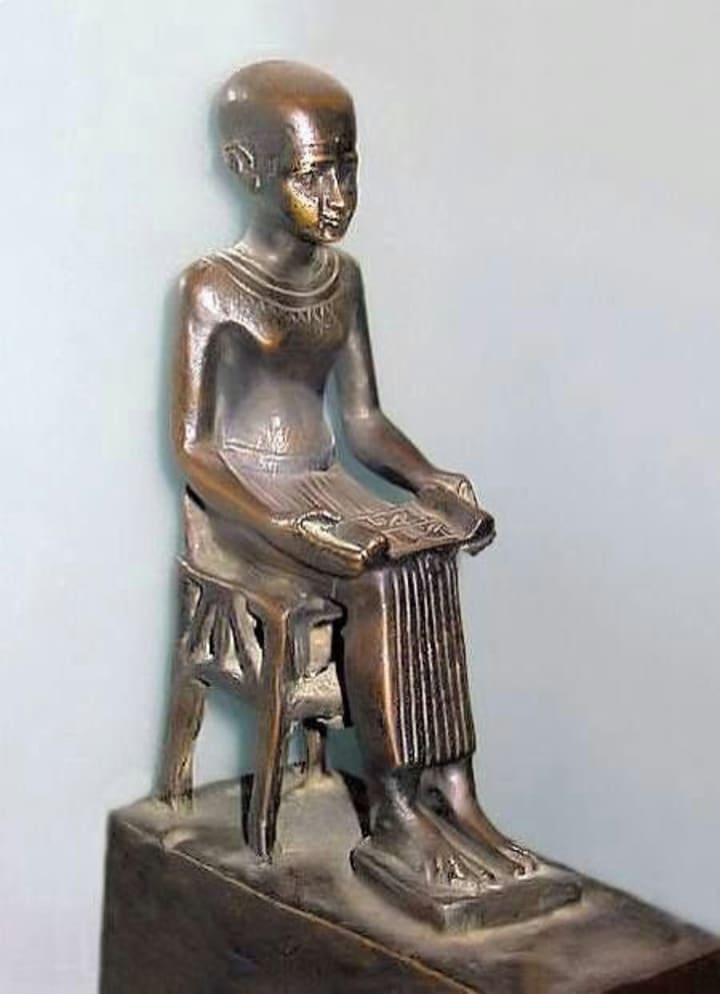
What is the first profession in history? Well, it is not the one we think. The dream interpreter was the first job in ancient Egyptian history. This was the purview of priests, magicians and spiritual consultants.
According to Ibn Sirin’s book The Interpretation of Dreams, the ancient Egyptian civilization is one of the first to value dreams and search for their meanings.
As you might expect, dreams of pharaohs and kings often had political consequences. Remember the biblical story about the pharaoh who had a dream that none of his advisors could interpret? He then summoned the prophet Joseph, who told him his dream meant there would be seven years of abundance, followed by seven years of famine.
Archaeologist Dr. Zahi Hawass wrote an article about the interpretation of the pharoah’s dream by Joseph. In his article, Dr. Hawass celebrated the discovery of an antique painting that proved the prophecy of Joseph was a real event in the pharoah’s life.

Another famous pharaoh’s dream is King Thutmose IV, in which the Sphinx of Giza told him that he would indeed ascend to the throne, which he did in 1401 B.C. In a rather mundane aside, the Sphinx also asked the king to have the dust removed from his statuesque form. Thutsmose IV granted this favor and then ordered a commemorative plate called “The Dream” to be carved for posterity. That very plate is now being restored by the Ministry of Antiquities in Egypt.
There is evidence of dream interpretations in ancient Egypt in literature, tales and even poetry. These included spells to ward off bad dreams.
The hieroglyphic word for bad dreams translates into “things that come attack us at night”.
There are more accounts of bad dreams than good ones. Perhaps early Egyptians had negativity biases just like we do.
Egyptians viewed dreams as a way to contact a god. How did the average, non-royal people get their dreams interpreted? They visited the temples. Temples had dedicated rooms where pilgrims could sleep and contact a god during a dream. This practice was called ‘incubation’. The pilgrim spent the night and, in the morning, he would speak to the dream interpreter to learn what to do.
People prayed to the god Imhotep and slept in his temples. There were also incubation chambers for the god Bes. These rooms were adorned with erotic imagery. The Bes incubation rooms were likely used to deal with fertility or sexual problems. For additional fees, a person could simply sleep in his own house and come to the temple in the morning.

Garry Shaw, in his amazing book The Egyptian Myths, shared a translation of an Egyptian spell to summon Imhotep, which was found on a Greek papyrus. Imhotep is one of my favorite Egyptian gods, a real-life architect who was worshiped as patron of scribes 1000 years after his death. Egyptians summoned Imhotep to cure them from illnesses. The spell to summon Imhotep involved drowning a gecko in a bowl of lily oil, then burning three grains of frankincense and repeating an incantation seven times. No, I have not attempted it, but sure sounds like fun.
Egyptian priests kept books with records of several dream situations and their interpretations. Here are some of these examples:
Eating donkey flesh
If someone saw himself eating the flesh of a donkey that meant he would get a promotion or great fortune would come his way. That sound bizarre, right? No, not really. Early Egyptians domesticated donkeys and used them for transportation and agriculture. In ancient Egyptian history, the donkey was a symbol for the god Seth. During some religious ceremonies they sacrificed donkeys. Archeologists found donkey skeletons and depictions of donkey hunts in tombs and temples.
Falling teeth or removal of fingernails
That meant bad omens. I think I agree with them on that. I believe I have seen that as torture in a couple of terrorist movie plots.
Drinking wine
That was interpreted as a positive sign. Naturally.
Drinking warm beer
That was a fell omen of suffering befalling the dreamer.
For a modest fee, a lazy person could have a priest dream on his behalf. I guess some regarded dreaming as hard work.
For more information about dream interpretation, read the work of a brilliant Egyptologist, Dr. Kasia Szpakowska, especially her book Behind Closed Eyes.
But wait, there is more! According to Ibn Sirin, a dream of pharaonic statues would bring good fortune and signify the fulfillment of wishes. Wasn’t this information worth reading the article to the end?
If you like this article, please feel free to check my other articles. Show support by sharing, sending a tip or clicking a heart. If you do, I will summon Imhotep in my dream and send you healing energy.
About the Creator
Asiya
Asiya is my Sufi name given to me by Sherif Papa, my spiritual guide. I was born in Cairo, Egypt. I am a spoken word poet. I love writing short stories. Feel free to email






Comments
There are no comments for this story
Be the first to respond and start the conversation.